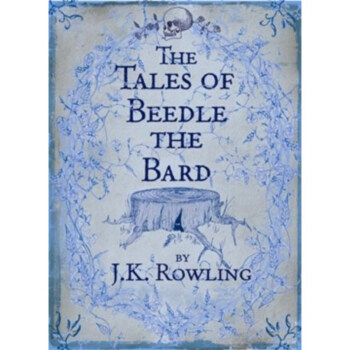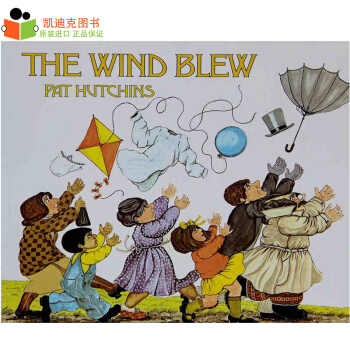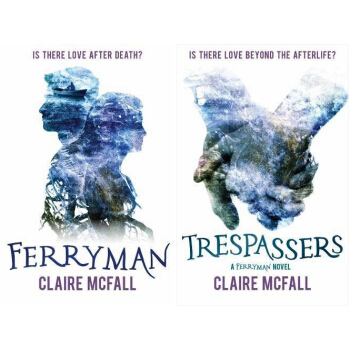![Angela's Ashes[安吉拉的灰烬] 英文原版 [平装]](https://pic.windowsfront.com/19028864/rBEhV1KYRu4IAAAAAA13fJT3p0oAAGO6gOdHcMADXeU073.jpg)

具体描述
内容简介
"When I look back on my childhood, I wonder how I survived at all. It was, of course, a miserable childhood: the happy childhood is hardly worth your while. Worse than the ordinary miserable childhood is the miserable Irish childhood, and worse yet is the miserable Irish Catholic childhood. People everywhere brag or whimper about the woes of their early years, but nothing can compare with the Irish version: the poverty; the shiftless loquacious father; the pious defeated mother moaning by the fire; pompous priests; bullying shcoolmasters; the English and the terrible things they did to us for eight hundred long years. Above all we were wet!" So begins Frank McCourt's stunning memoir of his childhood in Ireland and America, a recollection of unvarnished truth and no self pity, of grinding poverty and indomitable spirit that will live in the memory long after the tape has ended. Now a major film directed by Alan Parker and starring Robert Carlyle and Emily Watson.作者简介
Frank McCourt (1930-2009) was born in in Brooklyn, New York, to Irish immigrant parents, grew up in Limerick, Ireland, and returned to America in 1949. For thirty years he taught in New York City high schools. His first book, Angela's Ashes, won the Pulitzer Prize, the National Book Critics Circle Award and the L.A. Times Book Award. In 2006, he won the prestigious Ellis Island Family Heritage Award for Exemplary Service in the Field of the Arts and the United Federation of Teachers John Dewey Award for Excellence in Education.精彩书评
"Frank McCourt's gentle, understated voice throws into relief the admirable humour, spirit and humanity of the people who made the degradation of his childhood bearable."--Gramophone
精彩书摘
Chapter IVFirst Communion day is the happiest day of your life because of The Collectionand James Cagney at the Lyric Cinema. The night before I was so excited Icouldn't sleep till dawn. I'd still be sleeping if my grandmother hadn't come banging at the door.
Get up! Get up! Get that child outa the bed. Happiest day of his life an' him snorin' above in the bed.
I ran to the kitchen. Take off that shirt, she said. I took off the shirt and she pushed me into a tin tub of icy cold water. My mother scrubbed me, my grandmother scrubbed me. I was raw, I was red.
They dried me. They dressed me in my black velvet First Communion suit with the white frilly shirt, the short pants, the white stockings, the black patent leather shoes. Around my arm they tied a white satin bow and on my lapel theypinned the Sacred Heart of Jesus, a picture with blood dripping from it, flames erupting all around it and on top a nasty-looking crown of thorns.
Come here till I comb your hair, said Grandma. Look at that mop, it won't lie down. You didn't get that hair from my side of the family. That's that North of Ireland hair you got from your father. That's the kind of hair you see on Presbyterians. If your mother had married a proper decent Limerickman you wouldn't have this standing up, North of Ireland, Presbyterian hair.
She spat twice on my head.
Grandma, will you please stop spitting on my head.
If you have anything to say, shut up. A little spit won't kill you. Come on, we'll be late for the Mass.
We ran to the church. My mother panted along behind with Michael in her arms. We arrived at the church just in time to see the last of the boys leaving the altar rail where the priest stood with the chalice and the host, glaring at me. Then he placed on my tongue the wafer, the body and blood of Jesus. At last, at last.
It's on my tongue. I draw it back.
It stuck.
I had God glued to the roof of my mouth. I could hear the master's voice, Don't let that host touch your teeth for if you bite God in two you'll roast in hell for eternity. I tried to get God down with my tongue but the priest hissed at me, Stop that clucking and get back to your seat. God was good. He melted and I swallowed Him and now, at last, I was a member of the True Church, an official sinner.
When the Mass ended there they were at the door of the church, my mother with Michael in her arms, my grandmother. They each hugged me to their bosoms. They each told me it was the happiest day of my life. They each cried all over my head and after my grandmother's contribution that morning my head was a swamp.
Mam, can I go now and make The Collection?
She said, After you have a little breakfast.
No, said Grandma.You're not making no collection till you have a proper FirstCommunion breakfast at my house. Come on.
We followed her. She banged pots and rattled pans and complained that the whole world expected her to be at their beck and call. I ate the egg, I ate the sausage, and when I reached for more sugar for my tea she slapped my hand away.
Go aisy with that sugar. Is it a millionaire you think I am? An American? Is it bedecked in glitterin' jewelry you think I am? Smothered in fancyfurs?
The food churned in my stomach. I gagged. I ran to her backyard and threw it all up. Out she came.
Look at what he did. Thrun up his First Communion breakfast. Thrun up the bodyand blood of Jesus. I have God in me backyard. What am I goin' to do? I'll takehim to the Jesuits for they know the sins of the Pope himself.
She dragged me through the streets of Limerick. She told the neighbors andpassing strangers about God in her backyard. She pushed me into the confessionbox.
In the name of the Father, the Son, the Holy Ghost. Bless me, Father, for I have sinned. It's a day since my last confession.
A day? And what sins have you committed in a day, my child?
I overslept. I nearly missed my First Communion. My grandmother said I have standing up, North of Ireland, Presbyterian hair. I threw up my First Communion breakfast. Now Grandma says she has God in her backyard and what should she do.
The priest is like the First Confession priest. He has the heavy breathing andthe choking sounds.
Ah...ah...tell your grandmother to wash God away with a little water and for your penance say one Hail Mary and one Our Father. Say a prayer for me and God bless you, my child.
Grandma and Mam were waiting close to the confession box. Grandma said, Were you telling jokes to that priest in the confession box? If 'tis a thing I everfind out you were telling jokes to Jesuits I'll tear the bloody kidneys outayou. Now what did he say about God in my backyard?
He said wash Him away with a little water, Grandma.
Holy water or ordinary water?
He didn't say, Grandma.
Well, go back and ask him.
But, Grandma...
She pushed me back into the confessional.
Bless me, Father, for I have sinned, it's a minute since my last confession.
A minute! Are you the boy that was just here?
I am, Father.
What is it now?
My grandma says, Holy water or ordinary water?
Ordinary water, and tell your grandmother not to be bothering me again.
I told her, Ordinary water, Grandma, and he said don't be bothering him again.
Don't be bothering him again. That bloody ignorant bogtrotter.
I asked Mam, Can I go now and make The Collection? I want to see James Cagney.
Grandma said, You can forget about The Collection and James Cagney becauseyou're not a proper Catholic the way you left God on the ground. Come on, go home.
Mam said, wait a minute. That's my son. That's my son on his First Communion day. He's going to see James Cagney.
No he's not.
Yes he is.
Grandma said, Take him then to James Cagney and see if that will save hisPresbyterian North of Ireland American soul. Go ahead.
She pulled her shawl around her and walked away.
Mam said, God, it's getting very late for The Collection and you'll neversee James Cagney. We'll go to the Lyric Cinema and see if they'll let you in anyway in your First Communion suit. We met Mikey Molloy on Barrington Street. He asked if I was going to the Lyric and I said I was trying. Trying? he said. You don't have money? I was ashamed to say no but I had to and he said, That's all right. I'll get you in. I'll create a diversion.
What's a diversion?
I have the money to go and when I get in I'll pretend to have the fit andthe ticket man will be out of his mind and you can slip in when I let out the big scream. I'll be watching the door and when I see you in I'll have a miraculous recovery. That's a diversion. That's what I do to get my brothers in all the time.
Mam said, Oh, I don't know about that, Mikey. Wouldn't that be a sin and surelyyou wouldn't want Frank to commit a sin on his Communion day.
Mikey said if there was a sin it would be on his soul and he wasn't a proper Catholic anyway so it didn't matter. He let out his scream and I slipped in and sat next to Question Quigley and the ticket man, Frank Goggin, was so worried over Mikey he never noticed. It was a thrilling film but sad in the end because James Cagney was a public enemy and when they shot him they wrapped him in bandages and threw him in the door, shocking his poor old Irish mother, and that was the end of my First Communion day.
前言/序言
用户评价
说实话,我拿到这本《Angela's Ashes》的时候,并没有抱有多大的期待,我通常更偏爱一些情节跌宕起伏、充满奇幻色彩的小说。然而,这本书的吸引力却在不经意间悄悄渗透进来。我并非是那种精通英美文学的学者,只是一个普通的读者,但当我开始阅读它的时候,我发现自己被一种非常朴实而又深刻的文字所打动。作者的叙述方式,就像一位饱经沧桑的长者,用最真诚的语气,缓缓道来一件件往事,没有华丽的辞藻,也没有刻意的煽情,但那种真实的力量,却能直击人心。我常常在读到某些段落时,会不自觉地停下来,闭上眼睛,去感受那种字里行间透出的情绪,那种仿佛亲身经历的悲喜。我特别欣赏作者对细节的捕捉,那些看似微不足道的日常片段,在他的笔下却变得生动起来,仿佛我能闻到空气中的味道,听到远处的喧嚣,感受到指尖的冰凉。这本书就像一杯醇厚的威士忌,需要慢慢品味,才能体会到它深藏的韵味。我迫不及待地想知道,安吉拉的灰烬,究竟隐藏着怎样一个感人的故事。
评分我是一个对历史背景和人物成长轨迹非常着迷的读者,所以当朋友向我推荐《Angela's Ashes》时,我立刻被它的名字所吸引。虽然我还没有深入阅读,但仅仅从书名和一些零星的介绍中,我能感受到它背后所承载的厚重历史和复杂情感。我猜测,这可能是一部关于童年、关于家庭、关于一个特定时代背景下个体生存挣扎的叙事。我喜欢那种能够将个体命运与时代洪流巧妙结合的故事,它们往往能折射出更宏大的人性光辉与阴影。我对于作者如何处理生活中的困境和磨难非常感兴趣,是选择用压抑的笔触描绘绝望,还是会在字缝间透露出一丝希望的曙光?平装本的设计也让我觉得它更适合在旅途中或是在安静的午后,静静地沉浸其中。我不追求那种快节奏的阅读体验,更享受沉浸在一个故事世界中,感受人物的喜怒哀乐,理解他们选择的理由。我希望这本书能够给我带来一次深刻的心灵洗礼,让我对人生有更深的体悟。
评分这本书的封面设计本身就有一种沉甸甸的、难以言说的故事感。深灰色的背景,仿佛浸透了岁月的尘埃,而“Angela's Ashes”这几个字,褪去了鲜艳的色彩,带着一种被磨损的质感,像是从古老的故事书中被小心翼翼地翻出来。我是在一个阴雨绵绵的午后,在一家小小的二手书店里邂逅了它。书页泛黄,边缘有些卷曲,散发出淡淡的纸张和时光的味道。翻开它,第一眼看到的是密密麻麻的英文单词,仿佛一片沉寂的海洋,等待着我去探索其中蕴藏的波澜。我并不知道这个故事的具体内容,但我隐约感觉到,它不会是一本轻松愉快的读物。书名本身就带着一种忧伤和宿命感,安吉拉的灰烬,这个意象在我脑海中勾勒出一种破碎、失落,但又可能蕴含着坚韧与希望的画面。平装本的触感也恰到好处,不像硬壳装那样显得过于正式,更有一种贴近生活、可以随时随地捧在手中的亲切感。我喜欢它那种不张扬的美,那种沉淀在时光里的力量。我期待着,这本书能够带我进入一个不曾想象过的世界,体验一种可能从未经历过的情感。
评分我向来不是一个喜欢轻易下评判的人,特别是对于一本还没有完全读过的书。然而,当我看到《Angela's Ashes》这本平装书摆在我面前时,我内心深处涌起了一种莫名的期待。它的封面设计,那种不动声色的质感,仿佛是在诉说一个有故事的灵魂。我喜欢这种不张扬、不浮夸的风格,它让我觉得,这本书中所蕴含的内容,一定更加沉甸甸,更加值得细细品味。我并没有了解过这本书的具体情节,但“安吉拉的灰烬”这个名字,已经在我的脑海中描绘出一幅幅模糊而又深刻的画面。我猜测,这可能是一段关于成长,关于困苦,关于如何在绝境中寻找一丝光明的故事。我享受那种在阅读中不断探索、不断发现的乐趣,就像是在一片未知的水域中航行,每一次翻页都可能带来新的惊喜。这本书的平装本,给了我一种触手可及的亲切感,让我觉得它更像是生活的一部分,而不是某种高高在上的艺术品。我期待着,在接下来的阅读过程中,它能够触动我内心最柔软的部分,引发我最深刻的思考。
评分拿到这本书的时候,我立刻就被它简洁而富有力量的封面设计所吸引。虽然我还没有开始阅读,但“Angela's Ashes”这个名字本身就带着一种难以言喻的吸引力,它似乎在低语着一个关于失落、关于回忆,也许还有关于救赎的故事。我不是一个追求哗众取宠的读者,我更看重故事的深度和情感的真实性。这本书的平装版,给我一种朴实无华却又充满质感的感觉,它不像那些华丽的精装本那样遥不可及,反而更像是一个老朋友,可以随时随地打开,与之进行一场心灵的对话。我常常会在阅读前,先在脑海中勾勒出故事的轮廓,想象着作者会如何描绘他所经历的世界,他会如何塑造书中的人物,以及他们之间又会发生怎样错综复杂的故事。我期待着,这本书能够带给我一种久违的阅读的纯粹的快乐,一种能够让我忘记时间、忘记烦恼,全身心投入其中的沉浸感。
评分给爸爸的书,印的很好今天家里没有牛奶了,我和妈妈晚上便去门口的苏果便利买了一箱牛奶和一点饮料。刚好,苏果便利有一台电脑坏了,于是便开启了另外一台电脑。因为开电脑和调试的时间,队伍越排越长。过了5,6分钟,有一个阿姨突然提出把键盘换了,这样就能刷卡了。我妈妈就在旁边讲了一句:“键盘不能热插拔,必须要重启。”那个阿姨好像没听见,还在坚持已见。我提出:“妈妈,我们不要在这家店卖了吧!又不是在其他地方买不到。”妈妈看了看队伍,同意了。我们把东西一放,就去了另一家百货。我提出要换另一家店不是只因为这队伍太长,还有店员素质之差。你布置了两台电脑,那你随时都要准备好换一台电脑呀,你现在让人的感觉就是你只有一台电脑能用,那一台就好像是摆设,没有一点用。我气愤不过跟妈妈说“我们去网上买吧”这样就来京东了,看到了这本书就顺便买了。书是正版的,之前有过担心滴。内容还行吧,尽管我没觉得有多充实。冲着是名人写的,书的质量还行就不挑剔了。卖家发货挺快的,第二天就收到了。书还是不错的,精装外壳,发货速度真心的快,评价晚了,书不错,应该再早点看的。推荐看,只是粗浅认识了一下,已经感觉到自己逻辑思维更加清晰。好书,受益匪浅,如果不好好研究一下此书,绝对是人生一大遗憾。好了,我现在来说说这本书的观感吧,坐得冷板凳,耐得清寂夜,是为学之根本;独处不寂寞,游走自在乐,是为人之良质。潜心学问,风姿初显。喜爱独处,以窥视内心,反观自我;砥砺思想,磨砺意志。学与诗,文与思;青春之神思飞扬与学问之静寂孤独本是一种应该的、美好的平衡。在中国传统文人那里,诗人性情,学者本分,一脉相承久矣。现在讲究“术业有专攻”,分界逐渐明确,诗与学渐离渐远。此脉悬若一线,惜乎。我青年游历治学,晚年回首成书,记忆清新如初,景物历历如昨。挥发诗人情怀,摹写学者本分,意足矣,足已矣。据了解,京东为顾客提供操作规范的逆向物流以及上门取件、代收货款等专业服务。已经开通全国360个大中城市的配送业务,近1000家配送站,并开通了自提点,社区合作、校园合作、便利店合作等形式,可以满足诸多商家以及消费者个性化的配送需求。为了全面满足客户的配送需求,京东商城打造了万人的专业服务团队,拥有四通八达的运输网络、遍布全国的网点覆盖,以及日趋完善的信息系统平台。所以京东的物流我是比较放心的。好了,现在给大家介绍两本好书:《婚姻是女人一辈子的事》简介:最实用剩女出嫁实战手册、婚女幸福宝典;婚姻不是最终归宿,幸福的婚姻才是真正的目的;内地首席励志作家陆琪 首部情感励志力作;研究男女情感问题数年,陆琪首本情感婚姻励志作品。作者作为怀揣女权主义的男人,毫无保留地剖析男人的弱点,告诉女人应该如何分辨男人的爱情,如何掌控男人,如何获得婚姻的幸福。事实上,男人和女人是两种完全不同的动物,用女人的思考方式,永远也了解不透男人。所以陆琪以男性背叛者的角度,深刻地挖掘男人最深层的情感态度和婚姻方式,让女人能够有的放矢、知己知彼,不再成为情感掌控的弱者。二、《正能量(实践版)》——将“正能量”真正实践应用的第一本书!心理自助全球第一品牌书!销量突破600万册!“世界级的演讲家和激励大师”韦恩·戴尔,为我们带来了这本世界级的心理学巨作!他在韦恩州立大学获得过教育咨询博士学位,曾任纽约圣约翰大学教授,是自我实现领域的国际知名作家和演讲家。他出版过28本畅销书,制作了许多广播节目和电视录像,而且在数千个电视和广播节目中做过嘉宾访谈。本书跻身《纽约时报》畅销书榜数十周之久,在全球取得了极高的赞誉,曾激励数百万人走上追逐幸福之途。《正能量(实践版)》——内容最实用、案例最详实,10周改善你的人生!这本书是作者联合数十位科学家、心理学家,耗费十余年心力的研究结晶。通过一系列行之有效的方法,以帮助所有身处人生低谷、长期焦虑、沮丧、消沉、自我怀疑的人,过上幸福喜乐的生活。每一章都像一次心理咨询,详细论述了各种自我挫败行为,分析我们之所以不愉快、消极应对生活的原因,把人们日常生活中所暴露的性格缺陷(如自暴自弃、崇拜、依赖)和不良情绪(如悔恨、忧虑、抱怨、愤怒)逐条分析,揭开你最想知道的心理学真相,每章结尾都提供了简易的方法,使得你即刻改变恶行,拥抱新生。
评分还不错
评分包装很好,印刷也很好
评分[ZZ]写的的书都写得很好,[sm]还是朋友推荐我看的,后来就非非常喜欢,他的书了。除了他的书,我和我家小孩还喜欢看郑渊洁、杨红樱、黄晓阳、小桥老树、王永杰、杨其铎、晓玲叮当、方洲,他们的书我觉得都写得很好。[SM],很值得看,价格也非常便宜,比实体店买便宜好多还省车费。 书的内容直得一读[BJTJ],阅读了一下,写得很好,[NRJJ],内容也很丰富。[QY],一本书多读几次,[SZ]。 快递送货也很快。还送货上楼。非常好。 [SM],超值。买书就来来京东商城。价格还比别家便宜,还免邮费不错,速度还真是快而且都是正版书。[BJTJ],买回来觉得还是非常值的。我喜欢看书,喜欢看各种各样的书,看的很杂,文学名著,流行小说都看,只要作者的文笔不是太差,总能让我从头到脚看完整本书。只不过很多时候是当成故事来看,看完了感叹一番也就丢下了。所在来这里买书是非常明智的。然而,目前社会上还有许多人被一些价值不大的东西所束缚,却自得其乐,还觉得很满足。经过几百年的探索和发展,人们对物质需求已不再迫切,但对于精神自由的需求却无端被抹杀了。总之,我认为现代人最缺乏的就是一种开阔进取,寻找最大自由的精神。 中国人讲“虚实相生,天人合一”的思想,“于空寂处见流行,于流行处见空寂”,从而获得对于“道”的体悟,“唯道集虚”。这在传统的艺术中得到了充分的体现,因此中国古代的绘画,提倡“留白”、“布白”,用空白来表现丰富多彩的想象空间和广博深广的人生意味,体现了包纳万物、吞吐一切的胸襟和情怀。让我得到了一种生活情趣和审美方式,伴着笔墨的清香,细细体味,那自由孤寂的灵魂,高尚清真的人格魅力,在寻求美的道路上指引着我,让我抛弃浮躁的世俗,向美学丛林的深处迈进。合上书,闭上眼,书的余香犹存,而我脑海里浮现的,是一个“皎皎明月,仙仙白云,鸿雁高翔,缀叶如雨”的冲淡清幽境界。愿我们身边多一些主教般光明的使者,有更多人能加入到助人为乐、见义勇为的队伍中来。社会需要这样的人,世界需要这样的人,只有这样我们才能创造我们的生活,[NRJJ]希望下次还呢继续购买这里的书籍,这里的书籍很好,非常的不错,。给我带来了不错的现实享受。希望下次还呢继续购买这里的书籍,这里的书籍很好,非常的不错,。给我带来了不错的现实享受。
评分收藏来慢慢看的,应该不错
评分非常满意非常满意非常满意
评分京东商品和服务质量都有保证!
评分书很好,做活动的时候买的,够便宜,超高性价比,配送又快,支持京东!
评分儿子班里统一让买的,他说一开始介绍的部分读着有些吃力,后边就简单些了。适合初中生阅读的一本书。
相关图书
本站所有内容均为互联网搜索引擎提供的公开搜索信息,本站不存储任何数据与内容,任何内容与数据均与本站无关,如有需要请联系相关搜索引擎包括但不限于百度,google,bing,sogou 等
© 2026 book.coffeedeals.club All Rights Reserved. 静流书站 版权所有

![Escape to Freedom [平装] [8岁及以上] pdf epub mobi 电子书 下载](https://pic.windowsfront.com/19037136/f08ba0a8-31a4-485a-ab65-579eb795caf4.jpg)
![Oxford Learner's Pocket Dictionary牛津初级袖珍词典(第4版 软皮) 英文原版 [平装] pdf epub mobi 电子书 下载](https://pic.windowsfront.com/19039772/rBEhWFKis4YIAAAAABsAQsLiF9kAAGdrgCYQ1AAGwBa740.jpg)
![Curious George and the Puppies 好奇的乔治系列 英文原版 [精装] pdf epub mobi 电子书 下载](https://pic.windowsfront.com/19043196/ca099a42-3827-4e6e-9a49-6d1550fab516.jpg)
![The Trial A New Translation Based on the Restor [平装] pdf epub mobi 电子书 下载](https://pic.windowsfront.com/19507696/546045fbNe494fd73.jpg)
![Starting School Wipe Clean Activity Pack 4 Books Usborne英文原版 [平装] [5岁及以上] pdf epub mobi 电子书 下载](https://pic.windowsfront.com/19529278/55c171e3Nabe0a4b3.jpg)
![Richard Scarry's Trucks 英文原版 [0-3岁] pdf epub mobi 电子书 下载](https://pic.windowsfront.com/19531574/54dbfe2cNd099a260.jpg)
![Busy Santa [盒装] [1-5岁] pdf epub mobi 电子书 下载](https://pic.windowsfront.com/19550561/5620c98aN7adb652d.jpg)







![It's Elementary! Big Questions About Chemistry [平装] [9-12岁] pdf epub mobi 电子书 下载](https://pic.windowsfront.com/130000002722/58a6bbd1N8f5ff4ad.jpg)
![True Story of Pocahontas 风中奇缘 [平装] [5-8岁] pdf epub mobi 电子书 下载](https://pic.windowsfront.com/19016216/rBEhVlIgdGcIAAAAAAcNQolaEsQAACqhgMs4BQABw1a483.jpg)
![A Portrait of the Artist as a Young Man[一个青年艺术家的画像] [平装] pdf epub mobi 电子书 下载](https://pic.windowsfront.com/19017128/rBEhWVHRJqkIAAAAABOPEMLsGNcAAArwQA8tagAE48o197.jpg)
![Success with Sight Words [平装] [3岁及以上] pdf epub mobi 电子书 下载](https://pic.windowsfront.com/19031603/4621fd64-74d1-4c73-a6c2-04f33c7fc9d1.jpg)
![The Berenstain Bears' Moving Day (Berenstain bears first time books) 贝贝熊系列 [平装] [3-7岁] pdf epub mobi 电子书 下载](https://pic.windowsfront.com/19035427/f4fedc5f-8e8c-4dce-8d88-3af0568fb62a.jpg)
![The Berenstain Bears: He Bear, She Bear (Bright & Early Board Books)贝贝熊系列 [平装] [0-3岁] pdf epub mobi 电子书 下载](https://pic.windowsfront.com/19036625/495a3093-613b-48f5-8534-7c37c14a5785.jpg)